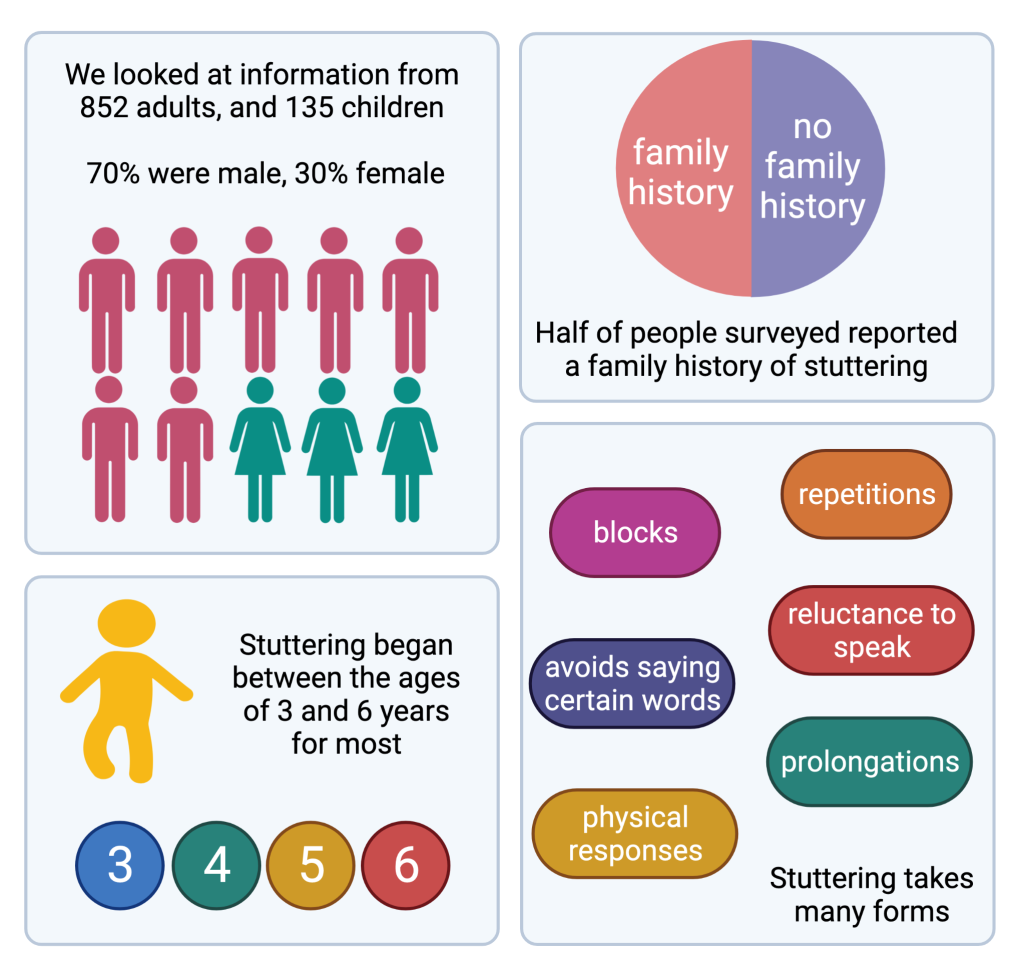Want to contribute to cutting edge stammering research?
UK recruitment is open! We are looking for people from the UK who who have ever experienced stammering, to take volunteer for our international genetics study! Our study is aiming to uncover the genes that predispose individuals to stammering. This work could revolutionise future research into the causes, and biology of stuttering. We are also…
Dysfluent
A personal perspective on stuttering by Sarah Horton, speech pathologist, PhD student and person who stutters. We often use the iceberg analogy to describe stuttering. Above the surface are the parts of stuttering that are observable to those around us: sound and word repetitions, prolongations, blocks, and those tic-like movements of our bodies that can…
New paper from the team: insights from the Australian arm of our study!
Insights into the everyday experiences of people who stutter We are very excited to share with you our recent paper: “Self-reported impact of developmental stuttering across the lifespan” in Developmental Medicine & Child Neurology. Through the Genetics of Stuttering Study, we are collecting a wealth of information from people who stutter (PWS), about the nature…
Stuttering persistence and recovery between 4 and 7 years
This study was nested within the Early Language in Victoria Study (ELVS), a large longitudinal community cohort based in Melbourne, Australia. The results showed that that 65% of children who stammered at 4 years had recovered by the age of 7. The recovery rate was similar for boys (60.7%) and girls (57.1%). Who was…
Are children who stutter likely to have different behavioural, emotional and social development?
Children who stutter may begin to show impaired behavioural, emotional and social development at early as age 3, and these difficulties are well established in older children who stutter” – McAllister, 2016 This study examined the externalising and internalising behaviours of children who stammer, or stutter, aged 3, 5 and 11 years. The study utilised…
Are children who stutter more anxious than those who don’t?
“We found no evidence that … 11 year old children who stutter were more anxious than those who had recovered from stuttering and nonstuttering controls” – Smith et al. 2017 This study examined anxiety and emotional and behavioural functioning in 11 year old children with persistent stammering, or stuttering. Results showed that the 20 individuals…






